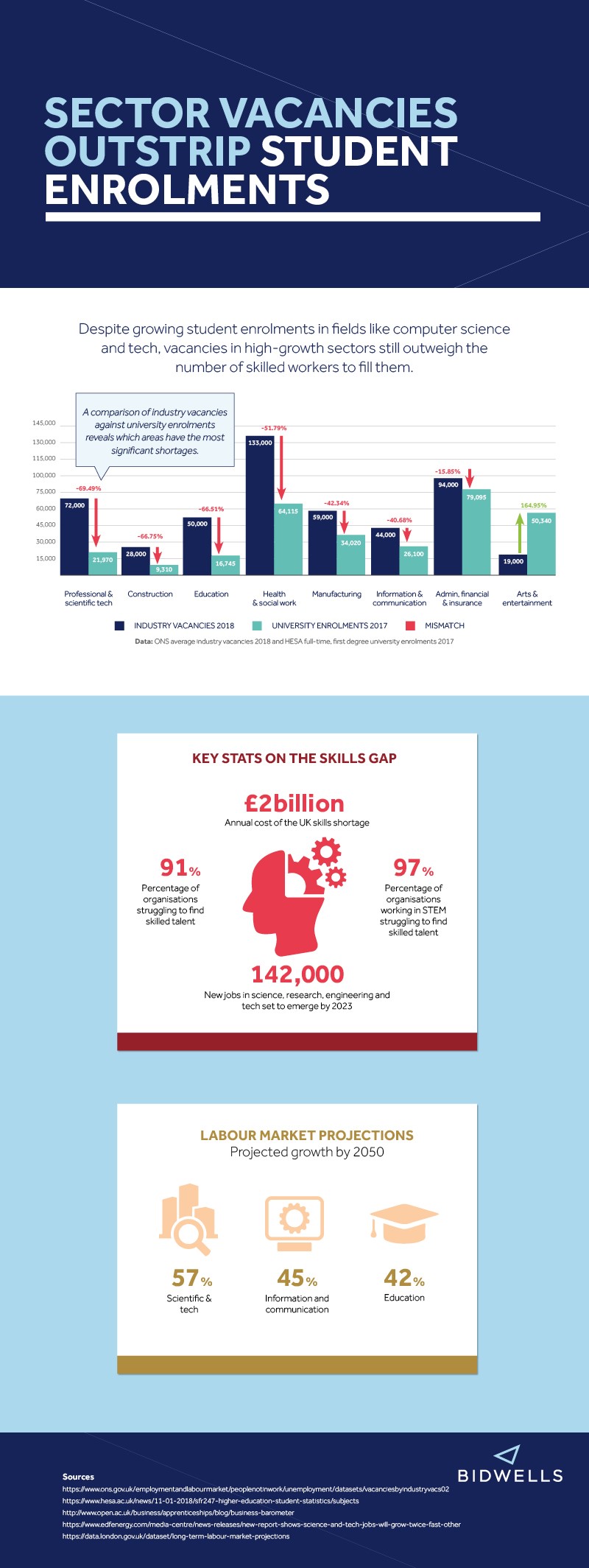A report by Open University showed that the UK skills gap is a major and well-publicised crisis that costs the country more than £2 billion a year. Further findings have stated 97% of organisations working in STEM and 96% of financial organisations have had difficulty hiring skilled employees over the last 12 months.
The research team at Bidwells has decided to find out more and compared industry vacancies against undergraduate enrolments in 2017 to uncover which areas have the most significant shortages.
They found that a combination of valuable economic skills and high-level technical education is critical to meet the UK’s skills needs, yet despite growing student enrolment in fields like computer science and tech, new jobs in these high-growth sectors still outweigh the number of skilled workers to fill them.

The analysis of the university enrolments demonstrates the mismatch between market demand for skills and the future supply of talent is particularly acute in knowledge-based industries. This suggests current vacancies in professional and scientific tech positions are three times higher than the total number of university enrolments in these subjects.
Science and tech jobs are predicted to grow twice as fast as other occupations, with 142,000 new jobs in science, research, engineering and tech anticipated by 2023. Looking further ahead, The London Datastore projects the information and communication sector will be the second highest growing sector over the coming decade in the UK, with an estimated 45% increase in employment growth by 2050.
According to the Industrial Strategy, these sectors are the most significant to the UK’s economic future, but the shortages of suitably qualified, high-skilled labour will present a brake on the UK economy unless addressed.
Will Heighman, Lead Partner for Science and Technology at Bidwells, suggested the solution would be investing in local and foreign talent. “The UK urgently needs to put in place measures to both deliver homegrown talent for the future as well as ease the process for attracting the best in class globally,” he concluded.





